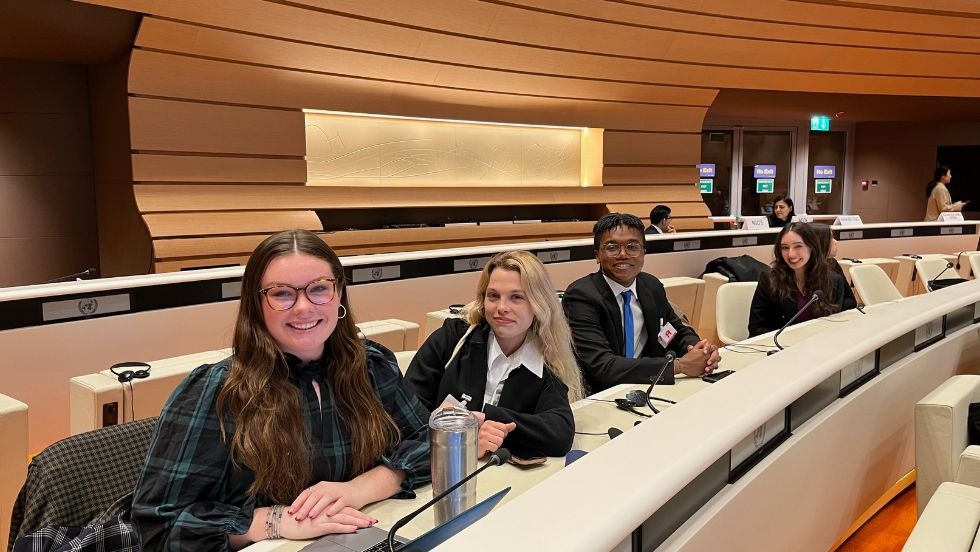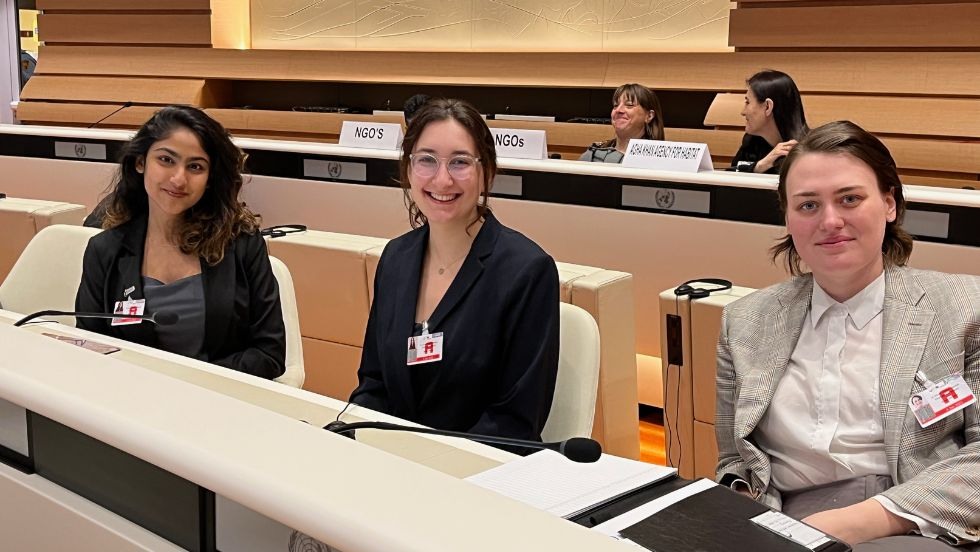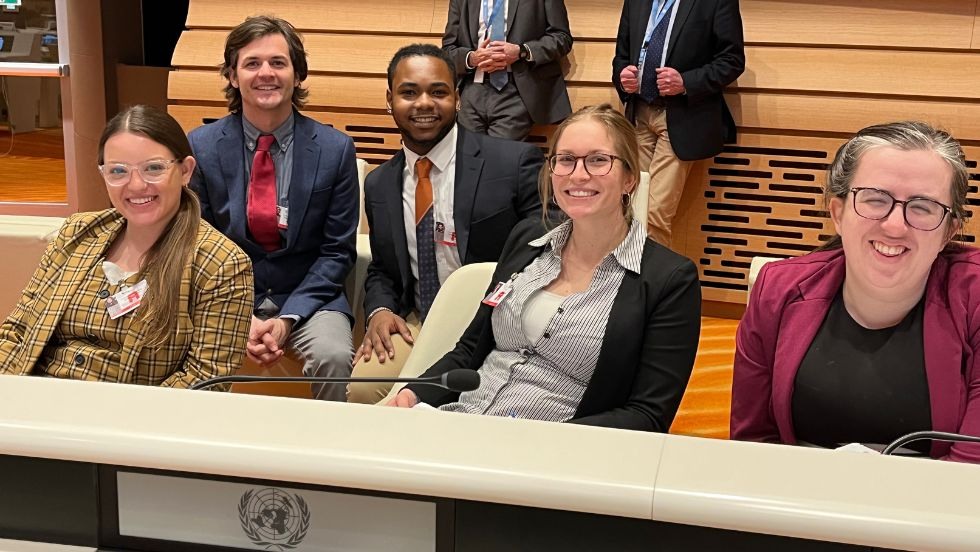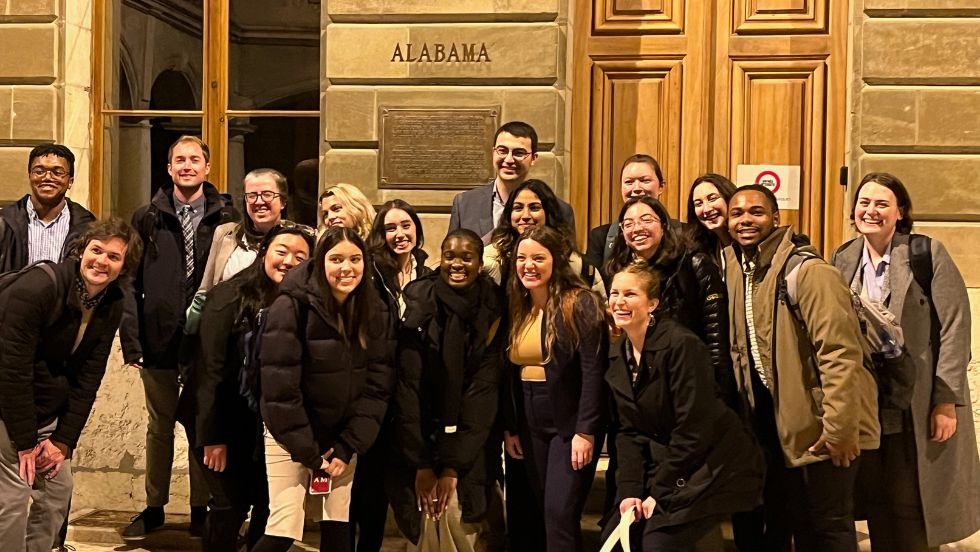This exciting opportunity came as part of the course, “Climate Extremes and Human Rights: Winter Session in Geneva” led by Professors Amanda Lynch and Charles Norchi, and partnered with the University of Maine School of Law. The course explores the ways in which climate extremes, population exposures, and enhanced vulnerability combine to create human rights disasters. During the trip, undergraduates from Brown and Law students from the Univerisity of Maine visited the World Meteorological Organization, the Office of the United Nations High Commissioner for Human Rights, and others. This year, the students had chosen the Pakistan floods as the focus of their research and worked closely with the Pakistan mission to the UN.
In September 2022, Pakistan was hit with flooding that killed at least 1,700 people. The disaster has been widely recognized as a result of climate change. This week, the UN held a major conference in Geneva to support Pakistan’s rebuild in the aftermath, and further address the larger question of who pays for climate disasters.
Pakistan's ambassador to the UN in Geneva, Khalil Hashmi, invited the students to this week’s conference where they heard discussions about the causes of the disaster, as well as financing the recovery. Students were also able to meet with senior members of the Pakistani government, including Sherry Rehman, Pakistan’s Minister of Climate Change, and listen to her negotiations with representatives of the Asian Development Bank, the Green Climate Fund, and others.
“…the focus of the discussion was the fact that these floods can be (rigorously as it turns out) attributed to climate change, and that beyond humanitarian aid and disaster relief, the rebuilding process should make Pakistan more resilient to the inevitable extreme events to come,” explained Amanda Lynch. “It is really new that a disaster is so unequivocally linked to climate change at the highest level.”
Through this unique experience, Brown University students gained invaluable insight into the global implications of climate change, engaged with world leaders contending with the cost of climate devastation, and developed skills to become the next generation of climate change leaders.



